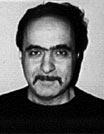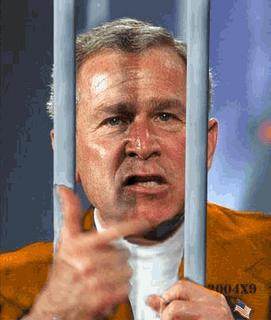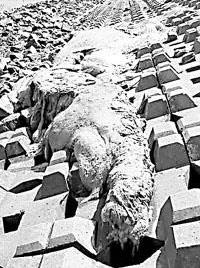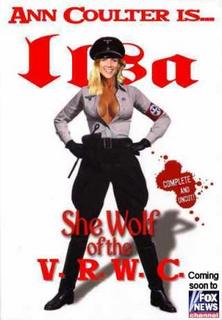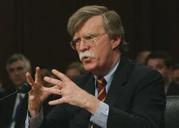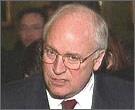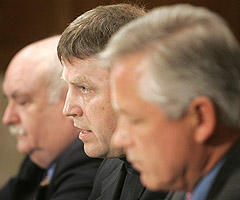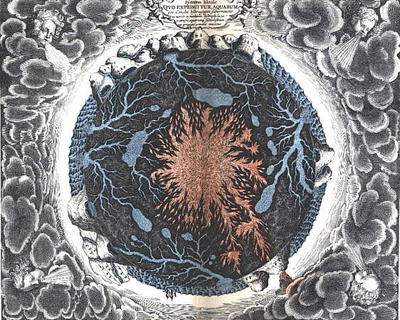 LIAR:
LIAR:
State Dept admits Bolton gave inaccurate answersBy Vicki Allen and Saul Hudson
WASHINGTON (Reuters) The State Department reversed itself on Thursday night and acknowledged that President Bush's U.N. ambassador nominee gave Congress inaccurate information about an investigation he was involved in.
The acknowledgment came after the State Department had earlier insisted nominee John Bolton's "answer was truthful" when he said he had not been questioned or provided information to jury or government investigations in the past five years.
"When Mr. Bolton completed his form during the Senate confirmation process he did not recall being interviewed by the State Department inspector general. Therefore his form as submitted was inaccurate in this regard and he will correct the form," State Department spokesman Sean McCormack said.
Earlier, Sen. Joseph Biden (news, bio, voting record) of Delaware said he had information Bolton was interviewed as part of a State Department-CIA joint investigation on intelligence lapses that led to the Bush administration's pre-Iraq war claim that Iraq tried to buy uranium from Niger.
Biden, the top Democrat on the Foreign Relations Committee, said that should have been noted on the questionnaire, for which nominees swear out affidavits stating the information is true and accurate.
"It now appears that Mr. Bolton's answers may not meet that standard," Biden wrote in a letter to Secretary of State Condoleezza Rice.
McCormack also said Bolton was not interviewed in special prosecutor Patrick Fitzgerald's investigation into who leaked the identity of CIA operative Valerie Plame. Earlier in the day, reporters questioned McCormack on whether Bolton testified before the federal grand jury investigating the case, as MSNBC reported last week.
'TOO LITTLE, TOO LATE'
In a letter to Bush, California Democratic Sen. Barbara Boxer (news, bio, voting record) said Bolton's admission was "too little, too late" and urged Bush to withdraw the nomination.
"A recess appointment of a man who did not tell the truth to the (Senate Foreign Relations) committee and only admitted the truth when he was caught would send a horrible message," Boxer wrote.
"It seems unusual that Mr. Bolton would not remember his involvement in such a serious matter. In my mind, this raises more questions that need to be answered. I hope President Bush will not make the mistake of recess appointing Mr. Bolton," Biden said in response to the admission that Bolton's information was inaccurate.
The nomination of Bolton, a favorite of conservatives, has been held up by accusations he tried to manipulate intelligence and intimidated intelligence analysts to support his hawkish views in his position as the top U.S. diplomat for arms control.
Lacking votes in the Senate to confirm Bolton, the White House has left open the possibility it might appoint him while Congress takes its monthlong summer recess that starts this weekend. A recess appointment would expire in January 2007 when the new Congress convenes.
Rice, appearing on the PBS News Hour, said that "the president will make that decision" on a recess appointment. "What we can't be is without leadership at the United Nations. ... I'm spending an awful lot of time these days preparing for the high-level meetings that are going to take place in September" on U.N. reforms.
Senate Majority Leader Bill Frist, a Tennessee Republican, confirmed the Senate would not act on Bolton's nomination in the remaining hours before the recess, "and therefore we will address it after the recess."
In procedural votes in May and June, Democrats denied Republicans the 60 votes needed from the 100-member Senate to close debate on Bolton and move to a confirmation vote, which would require a simple majority.
*


